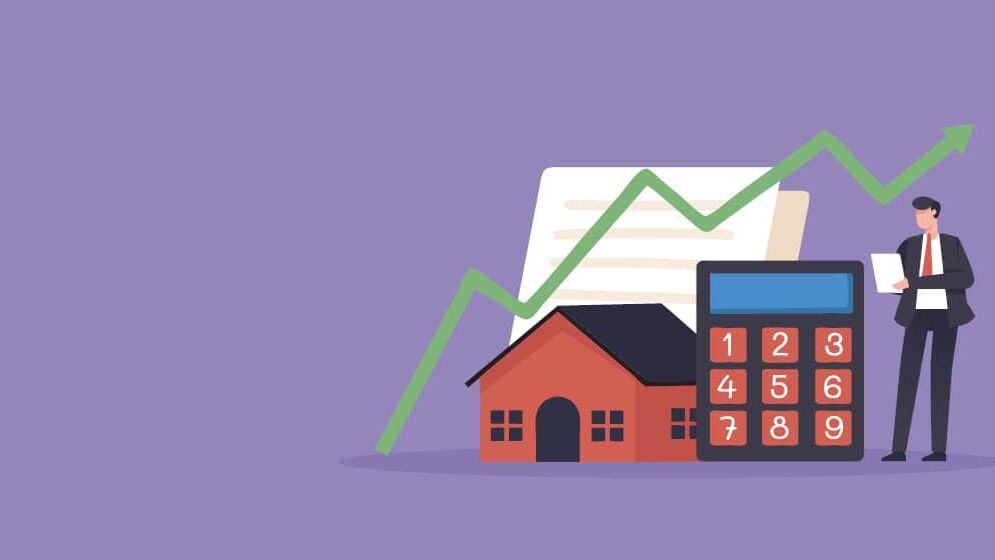
Property Newsletter – December 2022
Sharpest house price fall in two years
The average house price in the UK fell at the sharpest pace since early 2021, according to figures from Halifax. Prices fell by 0.4% in October, which was the third decline in four months. The annual rate of growth in house prices fell to 8.3% from 9.8%.
Across the UK, the average house price in October was £292,598, which was the lowest figure since May, although typical prices remained near record highs.
Despite the recent falls, house prices are still well above their pre-financial crisis levels.
The evidence suggests that the housing market is cooling off after a period of strong growth. This is likely to be due to a combination of factors, including rising interest rates, slowing economic growth and affordability constraints. However, it is worth noting that the monthly figures can be volatile and house prices may start to rise again in the coming months.
We will keep you posted on any changes.
Autumn Statement: Slashing CGT huge blow to landlords
Capital gains tax (CGT) is a tax levied on the profit you make when you sell an asset that has increased in value. Currently, there is an annual exemption of £12,300, which means that you only have to pay CGT on any profit you make above this amount. However, from next year, the exemption will be cut to £6,000, and then halved again to just £3,000 from April 2024. This will result in a significant tax bill for many landlords who are looking to sell their properties.
Landlords making more profit than the threshold when selling properties will be taxed at a rate of 18%, or 28% for higher-rate taxpayers.
Research by the estate agent Hamptons has shown that the average landlord who sold their buy-to-let property in England and Wales this year did so for £98,050 more than they paid for it. After deducting 10% for costs, this would leave the average higher-rate taxpayer with a £21,264 CGT tax bill.
However, from April next year, the threshold for CGT will be reduced to £6,000, meaning that the average higher-rate taxpaying landlord will have to pay an extra £1,764 in tax. And from April 2024, the average higher-rate taxpaying landlord will pay £2,604 or 12% more in CGT when selling.
With house prices as they are today, these changes could have a significant impact on the profitability of buy-to-let investments.
Autumn Statement: Stamp duty cut will end in 2025
In September, the Chancellor of the Exchequer, Kwasi Kwarteng, announced a cut to stamp duty in the mini-budget. The tax break, which applied to properties worth up to £250,000, was initially introduced as a permanent measure.
However, in the Autumn Statement, Chancellor Jeremy Hunt confirmed that the stamp duty cut will only remain in place until 2025. After that date, stamp duty will return to its previous levels, in which stamp duty is payable after £125,000.
This change is likely to impact the housing market in the short term, as buyers hurry to take advantage of the tax break before it expires.
However, it is also possible that the housing market will cool off after the stamp duty cut expires, as buyers who would have otherwise purchased property may feel less inclined to do so when faced with higher tax rates.
Only time will tell how this change will impact the housing market in the UK.
Councils given the flexibility to increase council tax and social rents capped at 7%
Jeremy Hunt announced that English local authorities will be able to increase council tax by 5% annually without a referendum.
Following the Autumn Statement, local authorities will be allowed to raise council tax by 3%, and those which also have social care responsibilities can increase it by a further 2% (a total of 5%) without a local vote.
You can keep track of your local council tax rates from your council’s website or by searching your address on gov.uk.
In addition, Jeremy Hunt has also announced that the government will limit social housing rent increases to 7% next year, rather than the 5% previously suggested.
The decision to raise the limit follows a consultation with social housing providers, which showed that a 5% increase would not be enough to cover the costs of repairing and maintaining homes.
The government has also stated that it will provide an additional £100 million to help social housing providers with the costs of repairs and maintenance. The announcement has been welcomed by many in the social housing sector, who say that it will help to ensure that homes are fit for purpose and can be maintained to a high standard. However, some have criticised the decision, saying that it will lead to higher rents for tenants.
Guide to selling your business
Your simple guide to helping you maximise the value in your business.
Sign up to receive alerts
Call us on 01628 770 770 for a no-obligation chat
You may also be interested in...
May 2024 – Tax News
It’s full steam ahead as we head towards summer and as ever there’s always something interesting to report on the tax front. WANT TO BE PART OF BETA TESTING OF MTD FOR INCOME TAX? Although making tax digital income tax self assessment (MTD ITSA) is…
Property Newsletter – May 2024
Welcome to our monthly newsletter for property landlords. We hope you find this informative and please contact us to discuss any matters further. Furnished Holiday Lettings: Reaction In Budget 2024, which took place on 6 April, the Chancellor…
New Head of Corporate Finance at Wilson Partners
We’re excited to announce some changes within the Corporate Finance Team. As of March 2024, Adam Wardle will be leading the drive to acquire businesses similar to ourselves, with like-minded team and a culture that will complement our own. Whilst…



